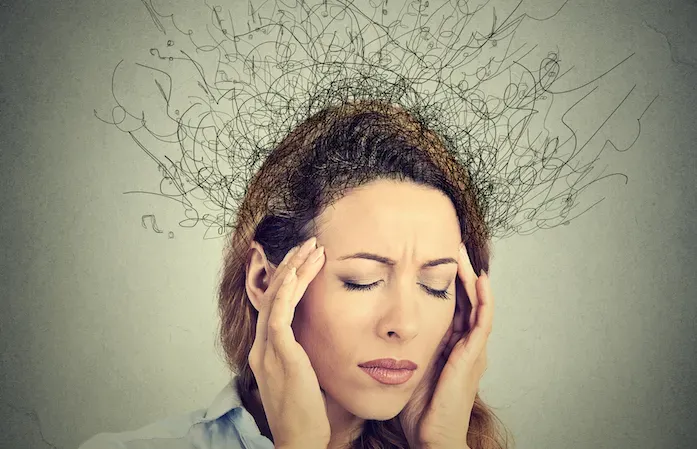Living with migraines can be frustrating. These painful headaches often strike without warning and can affect your daily routine. But did you know that identifying your personal migraine triggers can help you manage or even avoid them altogether?
In this blog, we’ll discuss some of the most common migraine triggers, how they affect your body and practical ways to deal with them. You’ll also find tips on when to seek medical help and why having a health insurance plan is important if your migraines turn into a chronic health concern.
What is a Migraine?
A migraine is more than just a headache. It is a neurological condition that can cause intense, throbbing pain, often on one side of the head. It may be accompanied by symptoms such as nausea, vomiting and sensitivity to light or sound.
Here are some major migraine triggers:
- Food-related triggers
What you eat can play a big role in triggering migraines.
Common culprits:
- Aged cheeses like Parmesan and blue cheese
- Processed meats (sausages, salami)
- Chocolate
- Alcohol, especially red wine
- Caffeinated drinks (when consumed in excess or suddenly stopped)
- Monosodium glutamate (MSG), often found in packaged food items
How to manage:
- Keep a food diary to track what you eat and when migraines occur.
- Eat regular meals; skipping meals can trigger migraines.
- Stay hydrated – dehydration is a known trigger.
- Hormonal changes
Hormonal fluctuations can influence migraine frequency and intensity, especially in women.
When does it happen?
- Before or during menstruation
- During pregnancy
- While using hormonal contraceptives
- During menopause
Coping tips:
- Track your cycle to anticipate migraine days.
- Speak to a gynaecologist about non-hormonal birth control options.
- Practise stress-reduction techniques like yoga or meditation.
- Environmental triggers
Sometimes, outside influences could be contributing to your migraines.
Examples:
- Bright or flickering lights
- Strong odours (perfumes, smoke, chemicals)
- Weather changes, especially barometric pressure
- Loud noises
Management tips:
- Wear sunglasses or blue-light filtering glasses
- Avoid heavily scented products
- Use air purifiers at home
- Stay indoors during extreme weather
- Sleep patterns
Inconsistent sleep can either cause or worsen migraines.
Triggers include:
- Sleeping too much or too little
- Jet lag or shift work
- Poor sleep quality
Maintain a healthy sleep routine:
- Stick to a consistent sleep schedule even on weekends
- Avoid screens before bedtime
- ensure your bedroom is cool, quiet and dark
- Stress and anxiety
Stress is often reported as a leading trigger of migraines. It may not be possible to eliminate all stress, but you can manage it effectively.
Ways to reduce stress:
- Practise mindfulness or guided breathing
- Exercise regularly, light aerobic activity helps
- Talk to a mental health professional
- Medication overuse
The medication you use to treat migraines might trigger an episode if overused.
Avoid:
- Taking painkillers more than two to three times a week
- Using triptans or ergotamines frequently
What to do:
- Consult your doctor for preventive treatment
- Avoid self-medication
- Ask about non-drug options like acupuncture or physiotherapy
- Sensory overload
For some people, overwhelming sensory input can cause a migraine.
Triggers:
- Long screen time without breaks
- Watching fast-paced or flashing videos
- Intense smells or visual clutter
Tips to control:
- Use screen filters or brightness adjusters
- Take frequent breaks from digital devices
- Maintain a calm and decluttered workspace
- Physical exertion
While exercise is generally beneficial for health, excessive or intense workouts can trigger migraines in some individuals.
Avoid:
- High-intensity training without proper hydration or food
- Skipping warm-up and cool-down routines
How to adjust:
- Choose moderate exercises like walking, swimming, or yoga
- Stay hydrated before, during and after workouts
- Eat a light snack before exercising
- Smoking and alcohol
Both smoking and alcohol are well-known migraine triggers.
Remember:
- Nicotine constricts blood vessels, which may trigger headaches
- Alcohol, especially red wine, contains tyramine, which is a migraine trigger
What you can do:
- Reduce or quit smoking
- Limit alcohol intake
- Seek help from cessation programmes if necessary
- Skipping meals or fasting
Even short-term fasting or missing a meal can lead to a migraine.
Why it happens:
- Drop in blood sugar levels
- Dehydration
Prevention:
- Eat regular, balanced meals
- Carry snacks if you have a busy schedule
- Drink enough water throughout the day
When to Seek Medical Help
If your migraines are frequent (more than 15 days a month), it is time to speak to a neurologist. Chronic migraines may require preventive treatment and ongoing monitoring.
Managing this condition can be costly in the long run. That’s where a health insurance plan becomes crucial. It can cover specialist consultations, diagnostic tests and even hospitalisation, if needed.
You might also want to consider critical illness insurance. This type of coverage provides a lump sum payout if you are diagnosed with a serious health condition.
Conclusion
Migraines may feel overwhelming, but identifying and managing the triggers can help you take control of your health. Be consistent with your lifestyle habits, seek medical advice when needed and don’t underestimate the value of financial planning for your health. Having the right health insurance policy ensures you are not caught off guard by medical expenses.
Whether it is daily medications, emergency treatments or long-term care, being insured gives you peace of mind. You can also explore critical illness insurance if you want added protection against severe neurological conditions.
ThePrint BrandIt content is a paid-for, sponsored article. Journalists of ThePrint are not involved in reporting or writing it.






